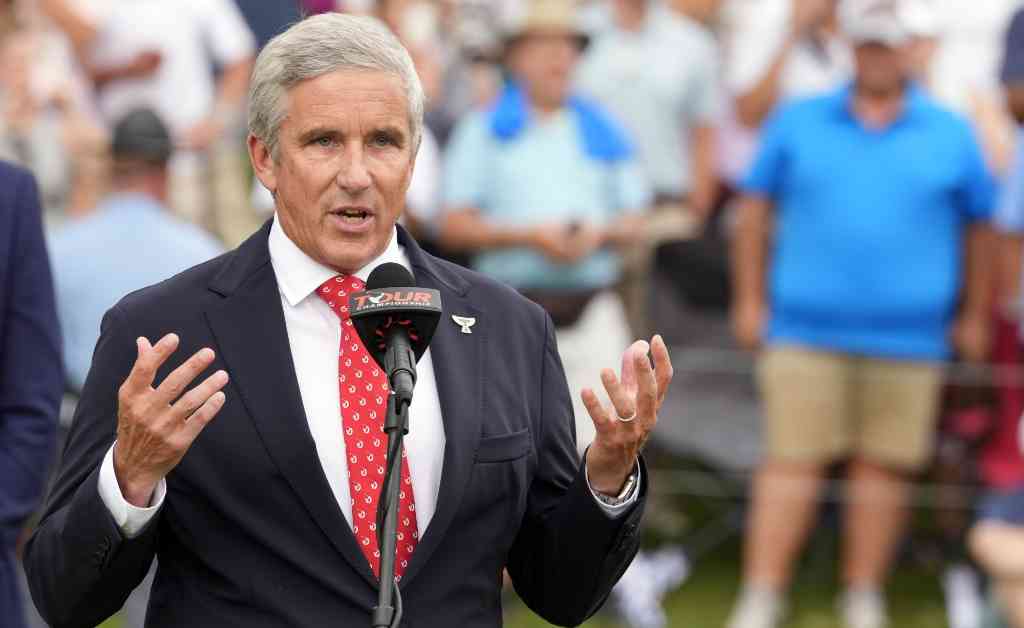Nearly a year and a half has gone by since the PGA Tour and the Saudi-backed rival LIV Golf announced a potential agreement to unify men’s golf. Recent reports from British tabloids suggest that a deal has finally been reached between the two parties. However, industry sources caution that these reports may be premature.
The process of finalizing the deal between the PGA Tour and LIV Golf has been complex, with many details still being ironed out. These details are crucial in addressing antitrust concerns, preventing player mutiny, and ensuring the satisfaction of golf fans. The lack of publicly available information indicates the intricacies and challenges involved in bringing everything together.
There is mounting pressure internally to reach a resolution before the year ends to avoid complicating future scheduling. While the PGA Tour has already announced its 2025 schedule, LIV has only released a few international tournament dates. PGA Tour commissioner Jay Monahan’s recent visit to Saudi Arabia, where he met with key figures, highlights the ongoing discussions and negotiations.
In August, it was reported that LIV was working with the same sports agency that represents the PGA Tour to secure media rights and sponsorship deals. However, LIV has yet to finalize a new media rights agreement for 2025 following the expiration of its previous contract. Moving forward, LIV is expected to maintain its team format to address antitrust concerns and contribute to the evolution of the sport.
Reports suggesting that LIV may merge with the PGA Tour Enterprises and offer an 11% stake to the Public Investment Fund of Saudi Arabia for $1.3 billion align with earlier discussions. This deal would grant the PIF significant influence within the organization. Additionally, a consortium of U.S.-based professional sports franchise owners has committed a substantial investment to PGA Tour Enterprises, indicating confidence in the future of the venture.
While the prospect of pros wearing shorts and tournaments without cuts may seem revolutionary to some, players who have joined the team-based competition appear content with their decision. They appreciate the reduced workload, ownership stakes in the franchises, and the novelty of the format. However, many players also desire the opportunity to compete in majors and seek unity in the golf landscape.
Negotiations between the PGA Tour and LIV are being conducted discreetly by top executives, leaving even senior staff members reliant on internal updates or media reports for information. The path forward for men’s golf remains uncertain, but stakeholders are working diligently to address challenges and shape the future of the sport.
